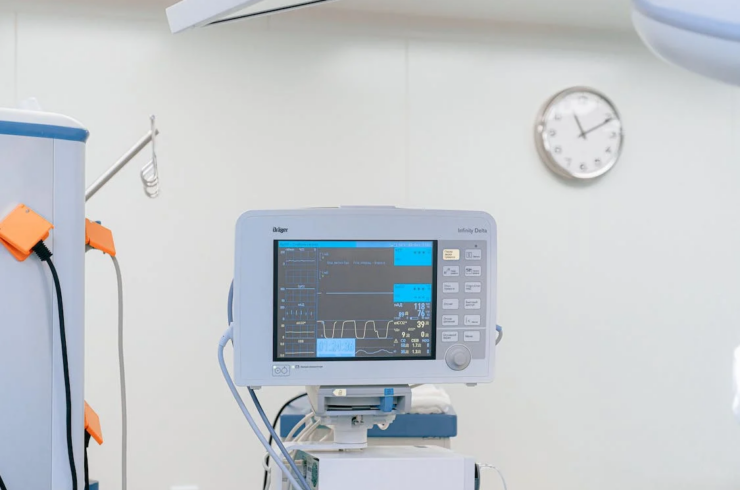As the pulse of our modern world quickens, efficiency and precision have become crucial across various sectors. The healthcare industry, responsible for the well-being of millions, is no exception. Amidst this landscape, one tool has emerged as a game-changer: time tracking.
This article will explore the healthcare industry’s intriguing world of time tracking. An often overlooked yet vital cog in the machinery of healthcare, time tracking has the potential to significantly streamline operations, enhance patient care, and even transform the entire sector.
From understanding the role of time tracking to exploring the challenges faced during its implementation, we’ll paint a comprehensive picture. We’ll then delve into the benefits of accurate time tracking in healthcare, followed by a specific look at its application in home healthcare. Finally, we’ll round off with a review of some of the leading time tracking software tools available today.
Here’s a quick outline of what we’ll discuss:
- 5 Benefits of Time Tracking for Healthcare
- Challenges with Healthcare Time Tracking
- A Closer Look at Home Healthcare Time and Expense Tracking
- Much-needed Features of Healthcare Time Tracking Software
- Top 3 Healthcare Time Tracking Software
- Wrap-up: Time Tracking Can Contribute to the Transformation of Healthcare

5 Benefits of Time Tracking for Healthcare
Time tracking, as a concept, is straightforward: it’s all about accurately measuring and recording the amount of time spent on different tasks. However, in the complex world of healthcare, the application and implications of time tracking are far-reaching. Let’s delve into the multifaceted benefits time tracking brings to the healthcare industry.
1. Enhancing Patient Care
At the heart of healthcare is the patient. Accurate time tracking can directly improve the quality of patient care. By meticulously tracking time spent on patient care, health professionals can identify inefficiencies, optimize procedures, and ensure that each patient receives adequate attention.
2. Facilitating Administrative Efficiency
Healthcare isn’t just about direct patient care; administrative tasks play a crucial role too. Time tracking can streamline administrative processes, reducing billing, scheduling, and reporting errors. This increased efficiency allows healthcare providers to spend less time on paperwork and more time on patient care.
3. Supporting Research and Development
Time tracking is also instrumental in research and development within healthcare. By accurately tracking time spent on various research activities, institutions can better manage their resources, track project progress, and even aid in procuring grants and funding.
4. Ensuring Compliance
Healthcare organizations must comply with numerous labor laws and healthcare regulations. Precise time tracking can help ensure compliance by providing clear work hours, overtime, patient care procedures, and more records.
5. Aiding in Resource Allocation
Effective resource allocation can mean the difference between life and death in the resource-intense healthcare sector. Time tracking enables institutions to understand where resources are being used and where they might be better allocated. This can lead to more efficient workflows, improved patient care, and cost savings.
Challenges with Healthcare Time Tracking
While the benefits of time tracking in healthcare are numerous, implementing such systems is challenging. Understanding these hurdles is essential to plan effective strategies for overcoming them. Here are the key challenges:
- Resistance to change: Like in any industry, change can be met with resistance, especially when it involves new technology or processes. Training staff to use time tracking tools and helping them understand the benefits can be a significant undertaking.
- Data privacy and security concerns: Healthcare data is highly sensitive, and any system that handles this data must prioritize security. Ensuring that time tracking systems meet security standards and comply with regulations like HIPAA is crucial.
- Logistical issues: Implementing a new time tracking system can be a logistical challenge. It requires careful planning, potentially new hardware or software, and consideration of how it will integrate with existing systems.
- Cost considerations: While time tracking systems can lead to cost savings in the long run, there’s an initial investment required for purchase and implementation. Organizations must consider this in their budgeting and forecasting.
- Accuracy of data: For time tracking to be effective, the data collected needs to be accurate. This can be a challenge if staff members need to remember to clock in or out, or if they misallocate their time across different tasks.
Each of these challenges requires a thoughtful approach and solution, but with careful planning and execution, they can be overcome to unlock the many benefits of time tracking in healthcare.
A Closer Look at Home Healthcare Time and Expense Tracking
Home healthcare is a booming sector in the healthcare industry, and precise time and expense tracking are paramount for its success. The home healthcare industry significantly contributes to the U.S. economy, with an estimated annual revenue of approximately USD 100 billion by 2024, according to Statista. Every minute and dollar matters, and keeping tabs on them can result in more effective service delivery and improved patient outcomes.
For example, consider a home healthcare provider that serves patients across a wide geographic area. Each caregiver must travel to different patient homes, provide care services, and accurately document their time and expenses for payroll purposes and billing, insurance, and regulatory compliance.
With efficient time tracking, the organization can guarantee fair compensation for their staff, precise service billing, and adherence to regulatory requirements. This process can be quite complex due to factors such as varying travel times, different types of care tasks, and the need to adjust schedules based on patient needs – making accurate time and expense tracking a critical component of managing home healthcare services.
Much-needed Features of Healthcare Time Tracking Software
Choosing the right time tracking software can make a significant difference in effectively managing healthcare operations. Here are some key features that healthcare organizations should look for in time tracking software:
- Ease of use: The software should be user-friendly, requiring minimal training for staff to use effectively.
- Integration capabilities: The tool should be able to integrate seamlessly with existing healthcare systems and software.
- Data security: Given the sensitivity of healthcare data, the software must prioritize data security and comply with regulations like HIPAA.
- Real-time tracking: The tool should offer real-time tracking capabilities to ensure the most accurate data.
- Reporting and analytics: Robust reporting and analytics features can help organizations identify patterns, inefficiencies, and opportunities for improvement.
- Mobile access: Given the nature of healthcare work, mobile access is a must-have feature.
- Expense tracking: In addition to time tracking, the software should also provide functionality for tracking expenses.
- Paid time off management: The software should include features for tracking and managing paid time off.
- Overtime calculation: The ability to automatically calculate overtime can help ensure accurate compensation and compliance with labor laws.
Top 3 Healthcare Time Tracking Software
Now we’ll review some of the leading time tracking software tools available in the healthcare industry.
1. Day.io – Overall The Best Healthcare Time Tracking Software
Day.io is a comprehensive time tracking software widely used by professionals worldwide. It offers real-time visibility, easy invoicing, and automatic data syncing with accounting software. Allows tracking time from anywhere and on any device.
The software ensures you get all the billable hours when invoicing, thus allowing you to spend less time on entering hours and more time on important work.
Features
- Automated time tracking with cross-platform compatibility and sync
- Visual and intuitive employee scheduling
- Accessible time clock with GPS and biometric validation
- Paid time off management
- Controllable extra hours
- Comprehensive cost reports and billing
Pricing
- Project time tracking: $6 per user/month
- Time & attendance tracking: $4 per user/month
Day.io also offers a free plan for up to five users (project time tracking) and up to ten users (time & attendance tracking).
2. TeamOB – Time Tracking with Many Handy Features Related to Healthcare
TeamOB is a healthcare-specific time tracking tool that improves efficiency and compliance. Features include capturing work hours, running payroll and invoices quickly, tracking overtime, handling time-off requests, enhancing performance, and providing synchronized scheduling. Popular among teams and provides detailed monitoring reports.
Features
- Healthcare activity monitoring
- Digital platforms for capturing time spent with patients
- Efficient administration and payroll management
- Employee time off requests management
- Overtime tracking and budget management
- Schedule access and change notifications
Pricing
TeamOB provides customized pricing plans upon request depending on your organizational needs.
3. On-Time Web – Easy to Use Time Clock with Multi-device Compatibility
On-time Web is a versatile time tracking solution suitable for all areas of the healthcare industry. It allows for flexible time tracking, less paperwork, note inclusion on timesheets, and accurate time capture. Compatible with any payroll system that accepts CSV file imports and features mobile apps for on-the-go tracking.
Features
- Accurate time capture in various healthcare settings
- Employee hours tracking by location, task, patient, etc.
- Mobile time tracking for on-the-go professionals
- Paperwork reduction via digital time entries
- Inclusion of notes on each time entry
Pricing
- 1-24 Employees: Total $35 per month
- 25-49 Employees: Total $70 per month
- 50-75 Employees: Total $105 per month

Wrap-up: Time Tracking Can Contribute to the Transformation of Healthcare
The value of accurate time tracking in the healthcare industry is undeniable. From improving patient care to ensuring administrative efficiency, its benefits are clear. Though the implementation may pose challenges, these are far outweighed by the potential for transformation in healthcare delivery.
To make this possible, having access to the right tools is key. Day.io stands out as a leading choice for healthcare time tracking software. It offers an intuitive interface and robust features – from real-time tracking and paid time off management to overtime calculation and comprehensive security measures – making it an invaluable asset to those striving for enhanced efficiency and better patient care outcomes.
It’s time to take the next step in healthcare transformation. Join Day.io and experience firsthand how effective time tracking can benefit your operations. Make every second count!
